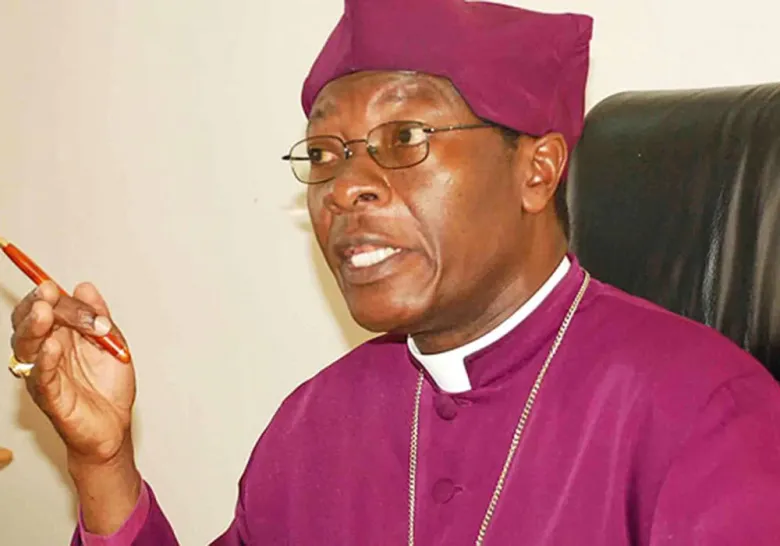KAMPALA, (UG); The process to elect the new Bishop of Namirembe Diocese has entered into a crucial phase with a crisis rumoured at the church over a conflict of interest among the synod committee members.
On Thursday 27 July this year, Kampala lawyer Frederick Mpanga of AF Mpanga Advocates and current chancellor of Namirembe Anglican Diocese convened a meeting of the Bishop Nomination Committee to go through the verification process of priests wishing to succeed Bishop Kityo Luwalira who is retiring in December this year.
Smartly dressed, the 15 members arrived in time at the Bishop Dunstan Nsubuga Hall in Namirembe for the 10.00 am meeting ready to receive applications and consider the two names to forward to the House of Bishops to elect the next bishop of the influential Namirembe Diocese. After the formalities, Mpanga started reading some sections of the canon law.
After a long monologue which bordered on boring his committee, Mpanga told the committee members that he had decided as chancellor to only present three candidates for nomination out of the 10 that applied. “Only three candidates have the qualifications to be nominated for election for the position of bishop of Namirembe Diocese,” Mpanga said to the bewilderment of committee members.
Mpanga said he had selected Rev Edward Stephen Kabanda, Ven. Canon Moses Banja and Canon Moses Kayimba as the three candidates from which two could be sent to the House of Bishops for election. He didn’t give the reasons on why he had disqualified the other seven candidates or why his chosen three were the perfect candidates.
The seven applicants that Mpanga chose to disqualify are; Ven. Canon John Gitta Kavuma, Ven. BK Buwembo, Rev Semei Ssebina Sekiziyivu, Rev Emmanuel Lutaaya, Rev Dr Thomas Timothy Nsubuga, Rev Esau Bbosa Kimanje and Rev Enock Kimanje.
The committee unanimously told Mpanga that he didn’t have the powers to disqualify candidates. “We are the nomination committee. We are not here to endorse your preferred candidates,” a member of the committee said. All the other members agreed.
Mpanga made many arguments and the meeting that was scheduled to end with lunch was adjourned at 6.00 pm, with the committee firmly refusing to endorse Mpanga’s manipulations of the rules.
Mpanga had been tasked to justify his decision. “Some of the applicants are not of good morals while others studied diplomas or certificates in theology first instead of having a bachelor’s degree first,” Mpanga argued.
Upon hearing this, many members argued that Canon 3.6 on the election and consecration of bishops didn’t give any order as to what a candidate for bishop studied first. The particular law reads that “no person shall be appointed Bishop unless he/she has attained the age of Forty-Five (45) years and is a holder of at least a Bachelor’s Degree in Theology of Divinity, or first degree in any other field with an additional Diploma in Theology from a recognized Theological Institution by Church of Uganda provided that a Bishop shall retire after serving for a period of fifteen (15) years or upon attaining the age of sixty-five (65) years, whichever comes first.”
Committee members cited the example of the newly elected Bishop of Mukon, Rt Rev Enos Kitto Kagodo who had a certificate in theology first before attaining a bachelor’s degree in environmental science and then a Masters in Divinity, which he attained in February this year.
Mpanga was accused of circumventing the law to push his preferred candidate and was openly accused of favouring Ven. Canon Banja. “Although members of the committee are elected by the Synod, the Chancellor is appointed by the sitting Bishop. Mpanga was appointed by Bishop Kityo Luwalira who is known to be very close to Ven. Canon Banja,” a source at Namirembe said.
“Bishop Luwalira and his family members have benefited directly from Banja as they used to reside in his house while pursuing further studies at the Uganda Christian University Mukono where Banja’s wife until recently was a professor,” the source in the meeting added.
Banja’s wife, Rev. Canon Prof Olivia Nassaka has since been appointed Vice Chancellor of Ndejje University, another Anglican Church owned institution.
Banja sources say was disqualified in Luweero where he had stood for the still vacant position of Bishop after Christians there petitioned the House of Bishops and civil court for the manipulation of the process favouring Banja and another candidate. “If Luweero couldn’t elect him, what makes him the right candidate for Namirembe without us looking at his credentials first?”
Namirembe is the latest diocese in the Anglican Church of Uganda were the election of a bishop has become a contentious issue after Luweero and Kumi. “The church must reconsider how nomination committees are elected. Appointing private lawyers with vested interests in land leases is causing us problems,” Simeon Kakooza, an Anglican from Lungujja told our reporter.
“These lawyers with questionable credentials like Mpanga should stay clear of how bishops are elected within our church. The next issue is going to be at the level of electing our archbishop,” Kakooza further argued. “This is going to cause disunity within the church. We are going to become like FDC, a political party where its leaders are fighting each other,” he further said.
Efforts to reach Mpanga were futile as he didn’t answer repeated calls on his known mobile phone number. A message was left at his law firm to call our reporter back but had not done so by the time of publication.
If you would like your article/opinion to be published on Uganda’s most authoritative news platform, send your submission on: [email protected]. You can also follow DailyExpress on WhatsApp and on Twitter (X) for realtime updates.



